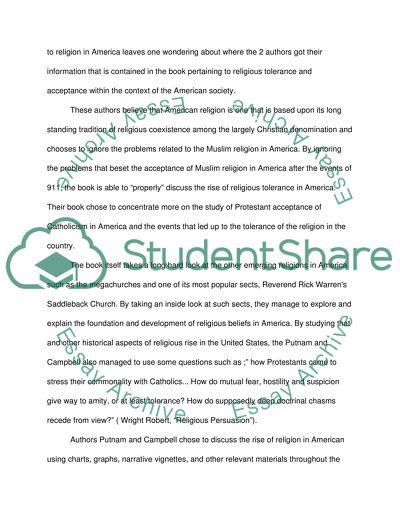Cite this document
(“Sociology of Religion Book Report/Review Example | Topics and Well Written Essays - 1000 words”, n.d.)
Retrieved from https://studentshare.org/sociology/1468389-sociology-of-religion
Retrieved from https://studentshare.org/sociology/1468389-sociology-of-religion
(Sociology of Religion Book Report/Review Example | Topics and Well Written Essays - 1000 Words)
https://studentshare.org/sociology/1468389-sociology-of-religion.
https://studentshare.org/sociology/1468389-sociology-of-religion.
“Sociology of Religion Book Report/Review Example | Topics and Well Written Essays - 1000 Words”, n.d. https://studentshare.org/sociology/1468389-sociology-of-religion.


